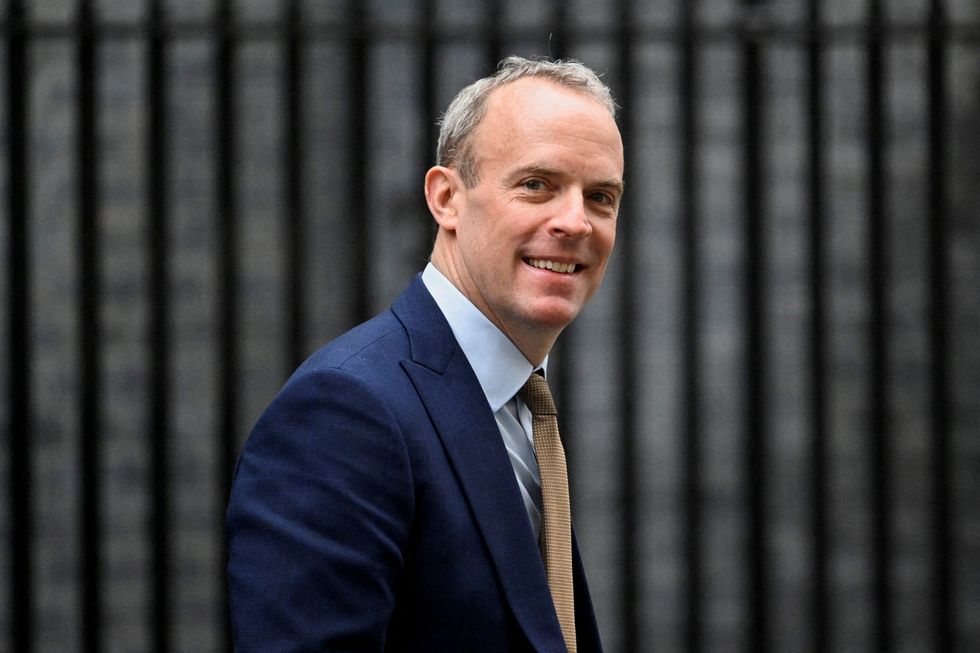A NEW law raising the legal age for marriage in England and Wales to 18 years came into force on Monday (27), aimed at protecting vulnerable young people from being forced into weddings against their will.
Until now, those aged 16 or 17 could get married with parental consent as there was no law against ceremonies for younger children not registered as vulnerable with their local councils.
“This law will better protect vulnerable young people, by cracking down on forced marriage in our society,” said deputy prime minister and justice secretary, Dominic Raab.
“Those who act to manipulate children into marrying under-age will now rightly face the full force of the law.”
Those found guilty of arranging child marriages face sentences of up to seven years in prison. So called “traditional” and non-legally binding ceremonies - viewed as marriages by the parties and their families conducted within some minority communities - will also be covered under the new legislation.
Ministers said the age of 18 is widely recognised as the age at which one becomes an adult and gains full citizenship rights.
Forced marriage was previously an offence only if the person used a type of coercion, for example threats, to cause someone to marry.
It is now an offence to cause a child under the age of 18 to enter a marriage in any circumstances, without the need to prove that a form of coercion was used.

Charities campaigning against forced marriages welcomed the new law.
“The change to legislation on child marriage is a huge victory for survivors. It is a huge leap forward to tackling this usually hidden abuse and will provide a greater degree of protection to those at risk,” said Natasha Rattu, director of the Karma Nirvana charity, which supports forced marriage victims.
“Last year, the national Honour Based Abuse helpline supported 64 cases of child marriage, representing only a small picture of a much bigger problem. We hope the new law will help to increase identification and reporting, affording greater protection to children at risk,” she added.
Child marriage is often associated with domestic abuse towards girls, who may leave education early, have limited career opportunities and suffer from physical and mental health problems.
The government said the legal change honours its commitment to the pledge made to the United Nations to end child marriage by 2030.
The new Marriage and Civil Partnership (Minimum Age) Act 2022, which gained Royal Assent in April last year and comes into force this week, was the result of a Private Member's Bill brought to Parliament by Conservative Party MP Pauline Latham.
It was supported by campaign organisations within the Girls Not Brides Coalition, which work to end child marriage and so-called honour-based abuse.
“This is a landmark day for the campaigners who have worked relentlessly for over five years to ban child marriage in this country. Child marriage destroys lives and through this legislation we will protect millions of boys and girls over the coming years from this scourge,” said Latham.
Minister for safeguarding, Sarah Dines, added: “Forced marriage is an abuse of human rights, which denies vulnerable children the freedom to learn, grow and thrive. Like all other forms of abuse, I'm committed to stamping out this exploitative practice.
“In addition, we are continuing to provide training and guidance to equip the police, social workers and other frontline professionals to support and safeguard victims.”
According to official data from 2021, the government's Forced Marriage Unit (FMU) provided advice or support in 118 cases involving victims below 18 years of age.
The courts have also issued 3,343 Forced Marriage Protection Orders between their introduction in 2008 and September 2022, which prevent someone from using threats, violence or emotional abuse as a way to force a person into marriage.
The new Act does not change the age of marriage in Scotland or Northern Ireland as marriage is a devolved matter.
It is hoped that raising the legal age to 18 in England and Wales may eventually be replicated in other parts of the UK.
(PTI)




